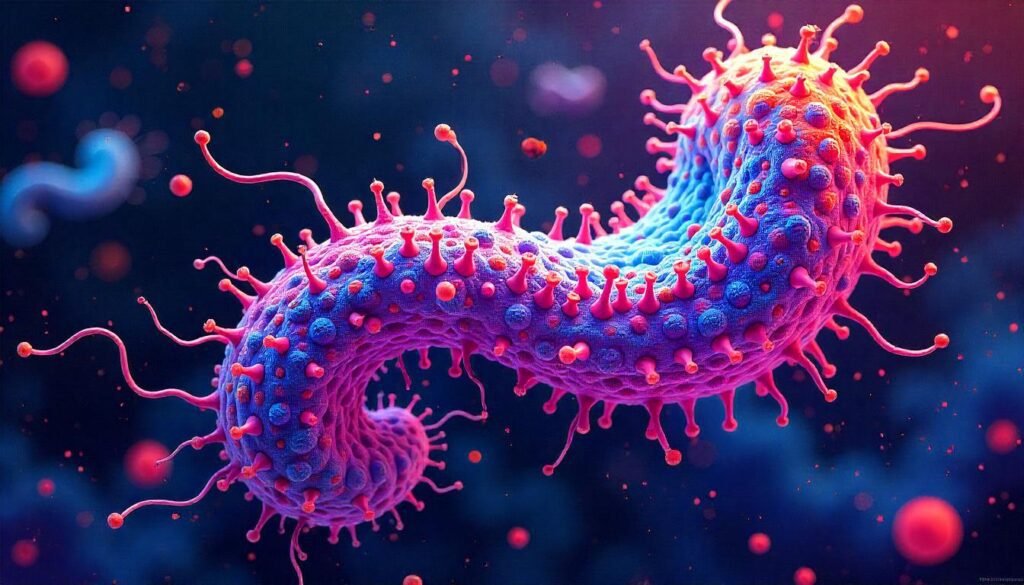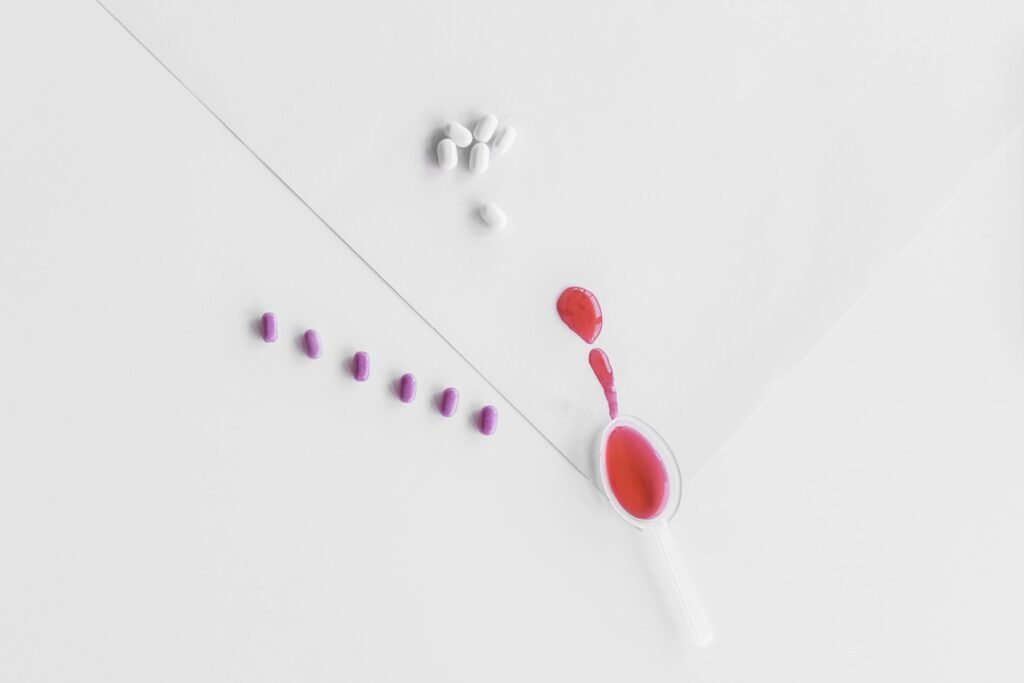Introduction: Why I Had to Write This
Let me start with a little honesty.
A few years ago, I was feeling off. My energy was low, I was bloated all the time, my skin was breaking out, and I felt anxious for no reason. My periods were all over the place, and no matter how healthy I tried to eat, I just didn’t feel “right.”
I went to doctors. I did blood tests. Everything looked “normal.”
But I didn’t feel normal.
It wasn’t until I started learning about the gut-hormone connection that things started to click into place.
What I discovered completely changed my health—and my life. If you’re feeling lost, exhausted, or confused by your own body, I want you to know: you’re not crazy, and you’re not alone. Your gut might be the key.
Let me walk you through how gut health affects hormones in simple, real-life language. No fluff, no judgment—just truth and science you can actually use.
Table of Contents
What Is Gut Health, Really?
When most people think of gut health, they imagine digestion—like bloating or constipation. But it’s so much more than that.
Your gut is a living, breathing ecosystem of trillions of microbes—good and bad bacteria that impact almost every function in your body.
Think of it like a garden. If the soil (your gut) is healthy, the plants (your organs, hormones, energy, skin) thrive. But if that soil is full of weeds and toxins? Everything struggles to grow.
Your gut affects:
- How you feel emotionally
- How well you sleep
- Whether you gain or lose weight easily
- Your immune strength
- Your ability to manage stress
- And especially—your hormones
Hormones: Your Body’s Internal Text Messages
I like to think of hormones as your body’s way of texting itself.
They send messages between organs, controlling things like:
- Hunger
- Sleep
- Stress
- Periods
- Energy
- Mood
- Sex drive
Now, imagine if some of those messages aren’t being delivered. Or worse, they’re being misinterpreted. That’s what happens when your gut is off balance. The messages don’t go through properly, and your whole body starts to feel it.
Meet Your Microbiome: Your Body’s Most Underrated Superpower

Your gut microbiome is made up of bacteria that live mostly in your large intestine. There are over 100 trillion of them—yes, with a T—and they play an insane number of roles in keeping you healthy.
They help digest food, absorb nutrients, fight off invaders, and even create some of your hormones. Your microbiome is like a behind-the-scenes control center that silently runs your body’s most essential processes.
When I began nurturing my gut, I felt like I was finally speaking the same language as my body again. My mind got clearer. My period came back on track. I felt like me again.
Gut Health & Hormones: The Deep Connection

Let’s break down how gut health affects specific hormones that run the show.
Estrogen: The Feminine Balance
Your gut contains a special group of bacteria called the estrobolome, which helps process estrogen. If your gut isn’t functioning properly, your body can’t clear out used-up estrogen—so it gets reabsorbed.
This leads to estrogen dominance, and it’s more common than you think.
Real talk: I had tender breasts, mood swings before my period, and insane sugar cravings. My cycle would disappear for months, then return like a tornado. Once I healed my gut, it was like flipping a switch.
Symptoms of estrogen imbalance:
- PMS
- Weight gain (especially hips/thighs)
- Heavy or painful periods
- Mood swings
Healing tip: Add fiber-rich foods like flaxseeds, lentils, and leafy greens to support estrogen detox naturally.
Cortisol: The Stress Hormone
Ever felt butterflies in your stomach when you’re anxious? That’s your gut and brain talking. Through the gut-brain axis, your microbiome tells your brain how stressed you feel.
An imbalanced gut increases inflammation, which increases cortisol, which keeps you feeling wired but tired. That’s why gut health is crucial for managing anxiety, burnout, and sleep.
I used to wake up feeling tired even after 8 hours of sleep. Meditation, adaptogens, and probiotics changed everything.
Symptoms of high cortisol:
- Trouble sleeping
- Anxiety or feeling “on edge”
- Belly fat
- Feeling tired but wired
Thyroid Hormones: Your Metabolism’s Best Friend
Your gut helps convert inactive thyroid hormone (T4) into its active form (T3). If your gut is inflamed or your liver is overloaded, that conversion slows down—and so do you.
I gained 15 pounds without changing my diet. My hair thinned. My hands were always cold. Doctors missed the thyroid connection until I looked deeper.
Signs of poor thyroid function:
- Brain fog
- Fatigue
- Weight gain
- Dry skin
- Cold sensitivity
Healing tip: Eat Brazil nuts (for selenium), bone broth, and fermented veggies to support gut-thyroid health.
Insulin: The Blood Sugar Boss
Your gut influences how your body handles sugar. When it’s off, your blood sugar spikes more easily, leading to insulin resistance, weight gain, and even PCOS.
I remember crashing every afternoon around 3 p.m. after a sugar-loaded snack. When I swapped processed foods for fiber and healthy fats, my cravings and crashes disappeared.
Symptoms of insulin imbalance:
- Cravings for sugar or carbs
- Energy crashes
- Weight gain around the belly
- Irregular periods
Serotonin: The Happy Hormone
Here’s a wild fact: 90% of serotonin is made in your gut. This is the hormone that keeps you calm, happy, and emotionally stable.
When your gut is off, your mood often follows. Depression and anxiety often go hand in hand with gut issues—and they’re not “just in your head.”
I felt emotionally fragile for months until I cleaned up my gut. Once I did, it was like the sun came out again.
Signs of low serotonin:
- Depression
- Anxiety
- Sleep problems
- Sugar cravings
Healing tip: Try fermented foods, probiotics, and getting outside in natural sunlight.
Warning Signs: When Your Gut Is Sabotaging Your Hormones
You might not notice your gut is the root problem—until everything starts feeling out of whack.
Common signs your gut is affecting your hormones:
- Irregular periods or no period at all
- Constant fatigue
- Skin issues like acne or eczema
- Mood swings, depression, or anxiety
- Bloating, gas, or constipation
- Poor sleep
- Weight gain that won’t budge
If this sounds like you, I want you to know: your body isn’t broken. It’s just asking for help.
How to Heal Your Gut and Balance Hormones Naturally

Let’s get real for a second.
When your gut is off, and your hormones are out of whack, it can feel like you’re constantly fighting your own body. I’ve been there—waking up tired, moody, bloated, and totally disconnected from my own skin.
But here’s the truth: healing your gut and balancing your hormones isn’t about being perfect. It’s about progress, small steps, and listening to your body with compassion instead of criticism.
So, let’s walk through the natural, sustainable ways you can restore balance—without needing a degree in nutrition or a cabinet full of expensive supplements.
1. Nourish Your Gut with Real, Whole Foods
Food is information. Every bite you eat sends messages to your gut and your hormones.
I used to eat “healthy” low-fat yogurt and protein bars and wondered why I felt worse. The problem? My gut was starving for real nourishment.
Start here:
- Eat more fiber. Your gut bacteria love fiber. It’s their food. When you feed them well, they work better for you.
- Try: lentils, chickpeas, apples, oats, flaxseeds, leafy greens.
- Include fermented foods. These are packed with probiotics—live bacteria that help rebalance your gut.
- Try: sauerkraut, kimchi, kefir, plain Greek yogurt, miso, tempeh.
- Focus on hormone-friendly fats. Healthy fats support your gut lining and help make hormones like estrogen, progesterone, and cortisol.
- Try: avocados, olive oil, wild salmon, chia seeds, walnuts.
- Eat the rainbow. A variety of colorful fruits and vegetables means a variety of polyphenols, antioxidants, and fiber your gut thrives on.
- Bonus: Different colors feed different types of gut bacteria—diversity is key!
- Ditch gut disruptors. Reduce or eliminate ultra-processed foods, refined sugar, alcohol, and artificial sweeteners. These inflame your gut and confuse your hormones.
“When I started swapping processed snacks for real food—like roasted sweet potatoes with tahini or chia pudding with berries—I noticed I wasn’t bloated all the time, and my mood stabilized in ways I didn’t expect.”
2. Heal and Seal the Gut Lining
If your gut lining becomes “leaky” (a real condition called intestinal permeability), particles like undigested food or toxins can enter your bloodstream. This triggers inflammation, disrupts hormone function, and makes you feel awful.
How to support your gut lining:
- Bone broth: Rich in collagen and amino acids that help rebuild the gut wall.
- L-glutamine: A supplement that supports gut lining repair.
- Zinc: Crucial for healing tissues. Found in pumpkin seeds, beef, and oysters.
- Gelatin: Add to smoothies or use in gut-friendly treats.
- Aloe vera juice (unsweetened): Has natural soothing and anti-inflammatory properties.
“One of the most comforting habits I picked up was sipping homemade bone broth in the evenings. Not only did it help my digestion, it felt like soul food.”
3. Support Your Liver for Hormone Detox
Your liver is your detox powerhouse. It helps clear out used-up hormones like estrogen. But if it’s overloaded with junk (think: alcohol, sugar, processed foods), it can’t do its job efficiently—and those excess hormones start recycling in your system.
How to love your liver:
- Drink plenty of water. Aim for 2–3 liters a day. Add lemon for a natural liver boost.
- Eat cruciferous vegetables. Broccoli, Brussels sprouts, and kale help your liver metabolize hormones more efficiently.
- Limit alcohol. Even “just one glass” of wine can slow detox.
- Add dandelion tea or milk thistle. These natural herbs gently support liver function.
“When I started drinking lemon water in the morning and swapped wine for herbal tea, I noticed my energy improved—and so did my skin and cycle.”
4. Restore Gut Bacteria with Probiotics + Prebiotics
Probiotics are the good bacteria that help balance your microbiome. Prebiotics are the plant fibers they feed on. You need both to build a thriving gut community.
Sources of probiotics:
- Yogurt with live cultures (unsweetened)
- Kefir
- Kimchi
- Sauerkraut
- Miso
- Kombucha (watch for sugar content)
Sources of prebiotics:
- Garlic
- Onions
- Leeks
- Bananas
- Asparagus
- Oats
- Chicory root
You can also take a probiotic supplement, especially if you’ve taken antibiotics recently, but always look for high-quality strains like:
- Lactobacillus acidophilus
- Bifidobacterium lactis
- Saccharomyces boulardii (great for antibiotic recovery)
“The day I started paying attention to both probiotics and prebiotics was the day my bloating and brain fog started to lift.”
5. Stress Less (Seriously)
Chronic stress is a silent hormone saboteur. It inflames your gut, spikes cortisol, and throws off your entire endocrine system.
I know—we can’t just quit stress. But we can learn to process it differently.
Here’s what helps:
- Deep breathing: 4-7-8 technique (inhale for 4, hold for 7, exhale for 8)
- Gentle yoga or stretching
- Journaling: Write down what you’re grateful for or what’s on your mind
- Nature time: Even 10 minutes outside can calm your nervous system
- Say no more often: Your peace is worth it
“When I started protecting my peace like I protected my work schedule, my body responded with more ease and flow.”
6. Sleep Like It’s Sacred
Your hormones repair, regulate, and reset while you sleep. Poor sleep raises cortisol, disrupts insulin, and throws off estrogen and progesterone.
Simple sleep hygiene that works:
- No screens 1 hour before bed
- Dim your lights after sunset
- Keep your bedroom cool and dark
- Create a relaxing routine (bath, book, tea)
- Go to bed and wake up around the same time daily
Try natural sleep supporters:
- Magnesium glycinate
- Herbal teas (chamomile, passionflower, valerian)
- Melatonin (use sparingly and short-term)
“Fixing my sleep did more for my hormones than any pill ever did. When I sleep well, I eat better, feel better, and life just flows.”
7. Move Your Body with Kindness
You don’t need punishing workouts. In fact, intense exercise can raise cortisol, which backfires for your hormones and gut.
Instead:
- Walk daily (even 20 minutes helps)
- Try Pilates, barre, or gentle strength training
- Stretch or foam roll
- Dance in your kitchen—yes, really!
“The best workouts for my hormones weren’t the hardest—they were the most joyful. That shift changed everything.”
8. Pay Attention to Poop (No Shame!)
Your gut talks to you through your poop. Regular, easy-to-pass bowel movements are one of the best signs that your gut and hormones are functioning well.
You want:
- 1–2 bowel movements per day
- Well-formed (like a banana)
- No undigested food or mucus
If things are off:
- Increase fiber and water
- Add magnesium citrate or vitamin C
- Don’t ignore the urge—go when you need to
“Once I got over the awkwardness of tracking my poop, I realized how powerful it was as a health signal.”
9. Be Patient—Healing Takes Time
Your gut didn’t get imbalanced overnight, and it won’t heal overnight either. Be gentle with yourself. Celebrate the small wins. Track your symptoms in a journal or app so you can see your progress.
You’re not being dramatic. You’re not lazy. You’re not broken.
You’re healing. That’s brave work.
Best Gut-Healing, Hormone-Friendly Foods
Let’s keep it simple. Add these foods into your week:
| Food | Benefit |
|---|---|
| Greek yogurt | Probiotics |
| Chia seeds | Fiber + omega-3s |
| Kimchi or sauerkraut | Fermented, rich in good bacteria |
| Leafy greens | Detox estrogen |
| Bone broth | Gut lining support |
| Sweet potatoes | Hormone-friendly carbs |
| Pumpkin seeds | Magnesium + zinc for hormone balance |
Final Thoughts: You Deserve to Feel Good Again

If you’re still reading this, I just want to say: you are not alone. So many of us have been where you are—frustrated, confused, and exhausted by a body that isn’t behaving.
But healing is possible. It starts with your gut. Trust that little voice telling you something’s off—because it’s probably right.
I’m not perfect. I still have days where I slip up. But now, I know how to listen to my body. And I want the same for you.
You don’t need to fix everything overnight. Just start with your gut.
Your hormones—and your whole body—will thank you.
FAQ: Gut Health & Hormones
1. Can poor gut health mess up my hormones?
Yes. Your gut helps regulate hormones like estrogen, cortisol, and insulin. If it’s out of balance, your hormones likely are too.
2. How long does gut healing take?
Most people notice changes in 4–8 weeks, but full healing can take a few months. Be consistent and patient.
3. What supplements help with gut and hormones?
Probiotics, magnesium, L-glutamine, omega-3s, and vitamin D3 are great starting points.
4. Can gut healing help with PMS or PCOS?
Definitely. A healthy gut supports hormone balance, reduces inflammation, and improves insulin sensitivity.
5. What if I don’t have digestive issues?
You can still have gut problems. Symptoms like mood swings, fatigue, acne, or irregular periods often trace back to the gut.
6. Do I have to cut gluten or dairy?
Not always. But it may help to remove them short-term to see if your body feels better.
7. Signs your hormones are off?
Irregular periods, mood swings, low energy, acne, and weight changes are common red flags.
